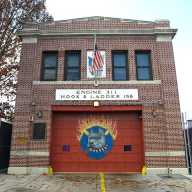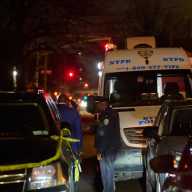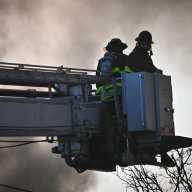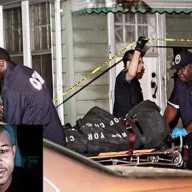A Queens man, Do Hyup Bae, pleaded guilty on Friday, January 12 to attempting to recruit a Korean woman whom he believed to be a minor to work as a prostitute, the Justice Department announced.
Bae’s brothels, which operated under the cover of legitimate business typically employed between two and eight prostitutes, the majority of whom were Korean nationals. He faces a maximum sentence of up to 40 years in prison, a $250,000 fine and restitution payments for human trafficking charges.
This case is one of many in what City Councilmember John Liu and many other prominent New Yorkers have come to think of as the modern day slave trade.
In response to complaints Liu’s office has received about illegal brothels and sweatshops operating in Flushing and other areas of Queens, he has joined with New York feminist Gloria Steinem and the New York State Anti-Trafficking Coalition Against Trafficking in Women, a group of leading New York-based organizations, to call on the state legislature to pass laws outlawing human trafficking.
The Advisory Council, chaired by Gloria Steinem, includes Mario Cuomo, Meryl Streep, Linda Fairstein, Eve Ensler, Karenna Gore Schiff, and Deputy Mayor Carol Robles among its members.
On January 11, Liu, Steinem and others launched “Albany Watch,” a series of weekly rallies, to be held every Thursday, intended to mobilize public pressure from across the state calling for the swift passage of a strong anti-trafficking laws.
At present, New York is not one of the 20 states that ban human trafficking, even though the City is one of the most important gateways to America for legal and illegal immigrants.
The problem is very serious and very difficult to combat. “Even when we work with the police to close down a brothel, the women forced to work there are simply handed over to another brothel and the cycle continues,” John Choe from Liu’s office said.
“Now the trade is invisible, part of the underground economy,” he said. The problem, according to Choe is demand, which results in supply and no matter what happens the supply is continuous.
Liu’s voice falters when asked about the economic impact of human trafficking. “This is modern day slavery. It’s hard even to discuss it economically because we’re talking about slaves.”
Liu doesn’t think it’s acceptable to talk about the effect on the larger economy. “This is illicit black-market activity that has to be stopped. The harm to the individual is so great to even talk about the harm to the economy is horrifying. The impact on the individual of being a modern day slave is devastating,” he said.
Taina Bien-Aimé, executive director of Equality Now, one of the 45 groups that make up the coalition, had a similar reaction. “This is a multi-billion dollar industry. There are some huge operators, but there are also small-time entrepreneurs running one or two girls,” she said.
“We need to focus on the demand side. Who are the people using these prostitutes? Nobody is concerned about addressing the issue in this way,” she said.
Liu, who has been personally responsible for closing down a number of brothers in and around Flushing, is one person who is focused on the demand-side of the sex slave trade.
“It’s rather horrific that any kind of sex with a minor is considered rape, and yet sex with a minor where money is exchanged is considered prostitution. This makes no sense,” he said.
While Liu thinks determining a punishment for users of sex slaves should be left to the lawyers, he is frustrated at the lack of consequences for men buying these services. “When there’s a bust the women get locked up but the buyers go free. There are, at present, no meaningful consequences for having sex with these modern day slaves.”
Liu is especially at incensed at buyers in sex trade being called patrons or customers. “You are a patron or customer at a grocery store or a department store. You wouldn’t call someone who buys heroin a customer. Buyers are fueling global demand, that is, buyers right here in New York are fueling global demand that has resulted in greatly increased human trafficking,” he said.
Unfortunately, there are few official sources of statistics on this problem. Liu and Bien-Aime are acting on information and complaints they have received and work they have undertaken to fight the problem. “The numbers are sketchy,” Bien-Aimé said. “The United Nations estimates four million people are trafficked world-wide and there is good reason to believe that between 14,000 and 20,000 come into the U.S.
“Queens is a place of considerable interest to groups seeking to end human trafficking. The Big Apple Oriental Tours - a company that organized sex tours to the Philippines and has been shut down due to the work of Equality Now was based in Bellerose.”
“Bae, the Korean man living in Queens who pleaded guilty to recruiting a minor for prostitution was operating 25 brothels across the northeast, several of which were in Queens,” Bien-Aimé said.
“Even Craig’s List, which is monitored by Equity Now’s Ken Franvlau, is frequented by Queens pimps and traffickers,” Bien-Aimé added.
According to Bien-Aimé, the response from Albany has been lackluster. “Trafficking involves tricking people, mostly women and children. They are told they will have a legitimate job, for example as a baby sitter. Then they are met at Kennedy, they do not speak the language, they are in debt for their passage, and if they resist they are raped repeatedly or drugged. We need strong laws against this,” Bien-Aimé said.
Bien-Aimé said that there are federal laws against trafficking but they don’t have the resources to go after individual traffickers. They are focused on organized crime and large operations. The first responders are local police but without training, education and strong legislation there is little they can do.
In the last six fiscal years, the Civil Rights Division of the Justice Department, in conjunction with U.S. Attorneys Office, has increased by six-fold the number of human trafficking cases filed in court, compared to the previous six years.
In the 2006 legislative session, the New York State Assembly and Senate both passed weak bills that were inadequate responses to the crime of human trafficking. Neither bill was enacted into law.
Calling for a strong and effective law, Liu said, “Human trafficking is a growing problem globally and we in New York, must open our eyes to this scourge. Legislation must be enacted to recognize the dangers posed by human trafficking, target those who perpetrate it, and support the victims.”
For more information, log on to www.stophumantraffickingny.org































